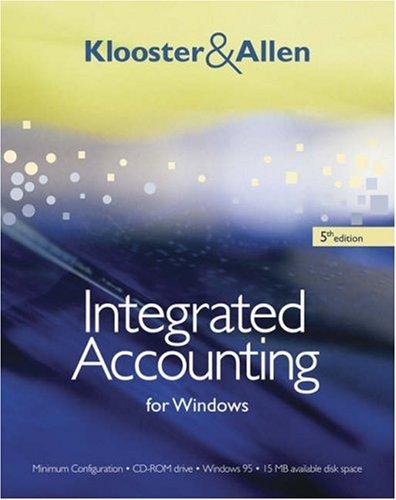Question
VALUATION METHOD EXPLAIN YOUR ANSWER. True or False 1.Economic value added (EVA) applies the target rate of return to the market value of the capital
VALUATION METHOD
EXPLAIN YOUR ANSWER.
True or False
1.Economic value added (EVA) applies the target rate of return to the market value of the capital invested in a division.*
True
False
2.Economic value added (EVA) is focused on short-term performance measurement.*
True
False
3.Total shareholder return takes into account two components of return namely capital appreciation and dividend received.*
True
False
4.Economic value added (EVA) applies the target rate of return to the book value of the assets invested in a division.*
True
False
5.A capital gain is the change in market price of the stock from the time it was purchased to the date it was sold (or the current price if it is still owned)*
True
False
6.The CFROI is a measure of the dollar surplus value created by an investment or a portfolio of investments.*
True
False
7.Economic value added (EVA) is a more appropriate performance measure when there is a large difference between the market value of invested capital and the book value of assets.*
True
False
8.TSR is a very useful tool for comparing the returns generated by the stock under consideration and stocks of other companies of different industries*
True
False
9.EVA is the excess of the company earnings after deducting cost of capital*
True
False
10.TSR is a common performance metric employed by financial analysts and is expressed as an annualized percentage of the sum total of capital loss and dividends returned to the investor*
True
False
MCQ
11.A measure of profit produced above the cost of capital is referred to as*
Cash flow return on investment
Cash flow return of investment
Economic Value Added
Total Shareholders Return
12.The return on investment (ROI) ratio measures*
only asset turnover.
only earnings as a percent of sales.
both asset turnover and earnings as a percent of sales.
asset turnover and earnings as a percent of sales, correcting for the effects of differing depreciation methods.
13.This measure highlights net cash flows from operations rather than reported income and produces a rate of return that can be compared with alternative company or market rates of return (the cost of capital)*
Cash flow return on investment
Cash flow return of investment
Economic Value Added
Total Shareholders Return
14.Return on investment (ROI) is a term most often used to express income earned on assets invested in a business unit. A company's return on investment would increase if sales*
increased by the same dollar amount as expenses and total assets increased.
remained the same and expenses were reduced by the same dollar amount that total assets increased.
decreased by the same dollar amount that expenses increased.
and expenses increased by the same percentage that total assets increased.
15.If a new project generates a positive residual income, the*
project's return on investment is less than the target rate.
project's return on investment is greater than the target rate.
project's return on investment is equal to the target rate.
relationship between the project's return on investment and the target rate cannot necessarily be determined.
16.The ratio of income to assets invested is referred to as ______________________________.*
Economic Value Added
Total Shareholders Return
Return on Sales
Return on Investment
17.The Du Pont model measures*
residual income.
return on investment.
throughput.
profit.
18.If a division generates a positive residual income then the division's*
asset turnover was very high.
profitability was greater than that of other divisions in the company.
performance was above expectations.
actual return on investment exceeds the division's target return.
19.The following are the Disadvantages of TSR, except*
A. TSR is calculated in case of publicly traded companies, not at a divisional or individual level, but on an overall level.
B. It can be calculated only for those investments where there are one or more cash flows after the stock is purchased.
C. It is based on the market price of a stock, which may be affected by many external factors, especially in the short term.
D. It helps an investor to understand how well the stock is performing
20.Return on investment is computed by dividing income by*
contribution margin.
inventory turnover.
assets invested.
average assets employed.
Step by Step Solution
There are 3 Steps involved in it
Step: 1

Get Instant Access to Expert-Tailored Solutions
See step-by-step solutions with expert insights and AI powered tools for academic success
Step: 2

Step: 3

Ace Your Homework with AI
Get the answers you need in no time with our AI-driven, step-by-step assistance
Get Started


